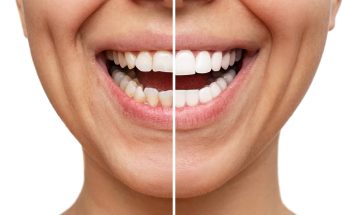It is usual that many people face hearing loss on one side. The other side might be alright, and you can hear voices from that one ordinarily, but the one that gets affected by noise or any other thing can cause a hearing loss on one side. Those who face this problem feels difficult to hear voices in crowds and noisy environments. They find it challenging to know the place from where the sound is coming. They can’t tune out the background noise. The hearing loss on one side is also referred to as unilateral hearing loss or unilateral deafness.
Unilateral hearing loss diagnosis
The diagnosis of every problem is a must thing to do. National Institute on Deafness and Other Communications Disorders (NIDCD) indicates the chances of one-sided hearing loss is lesser than two-sided. The percentage is from 10 to 15 of people undergoing unilateral hearing loss. The doctors diagnose the problem through screening tests and identifying medical history. Sometimes, allergies can be the reason for hearing loss on one side which can only be diagnosed through proper hearing tests that your audiologists suggest. Your response to the diversity of voices indicates the severity of your hearing problem. The different parts can be affected due to numerous reasons, and through tests, the doctors come to know the root cause of your unilateral hearing loss. Once diagnosed, it is necessary to go for thorough and proper treatments.
Causes of unilateral hearing loss
There are several causes of hearing loss on one side. Some of the most prevalent causes include aging and chronic exposure. Aging is a natural process, yet many people tolerate unilateral hearing loss because of aging.
Other causes might include the reversible buildup of wax. During the removal of wax, people lift it in-depth in the ear that resists the sound waves. Excessive earwax reduces the conduction of sound in the ear, which leads to unilateral hearing loss. Medical conditions such as acoustic neuroma, eardrum rupture, Meniere’s disease, neurofibromatosis type 2, otitis externa, otitis media with effusion, shingles, Reye’s syndrome, or temporal arteritis are also the root causes of one-sided hearing loss.
Unilateral hearing loss treatment
The root cause of your kind of hearing problem suggests the best treatment. The doctors will recommend the appropriate medicine after knowing the causes and treat your hearing loss on one side. Usually, an audiologist recommends a hearing aid for one-sided hearing loss. There are many other treatments depending upon your situation, such as surgery to repair the ear or remove a tumor. The doctors can also suggest antibiotics for the treatment of infection and steroids to reduce inflammation.
Even there are several products for the treatment, such as hydrogen peroxide, baby oil, mineral oil drops, or Debrox, for the hearing loss prompted by wax buildup.
Bottom line
Hearing loss on one side can become dangerous and move to the other ear if not diagnosed or treated soon. Whenever you feel irritation and lower interaction of sound waves to your ear, you need to approach your audiologist as soon as possible.




